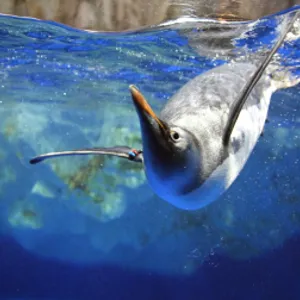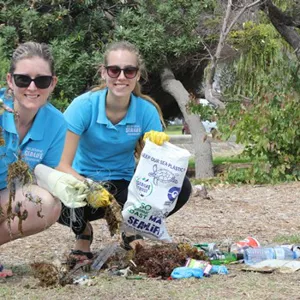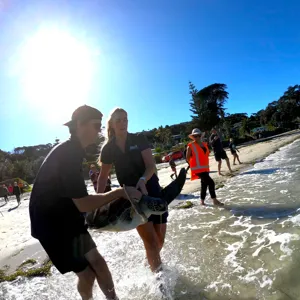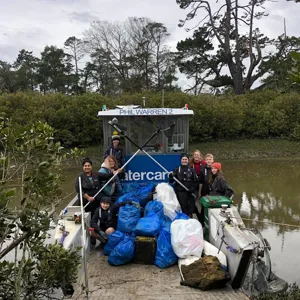Turtle Rehabilitation Centre
Kelly Tarlton's Marine Wildlife Trust Turtle Conservation Program
Rescue, Rehabilitate, Release.
Did you know that SEA LIFE Kelly Tarlton's is the only place in New Zealand that rehabilitates rescued turtles? Discover how we work with these amazing creatures in the Turtle Bay Oceanarium.
Of the seven species of marine turtles, 5 can be found in New Zealand's waters, all of which are classed as endangered, with some being on the verge of extinction. Turtles are generally found in warmer tropical waters but can get washed into colder areas if they are weak from injury or sickness.
SEA LIFE Kelly Tarlton's voluntarily started a Turtle Rehabilitation Program in 1991 where we treat sick or injured sea turtles found around New Zealand's waters. Green Sea Turtles are the species most commonly brought to SEA LIFE Kelly Tarlton's, however, we have treated Hawksbill, Olive Ridley and Loggerhead turtles as well.
It was for this reason that Kelly Tarlton's Marine Wildlife Trust was established in 2010, to continue and fund this vital rehabilitation centre.
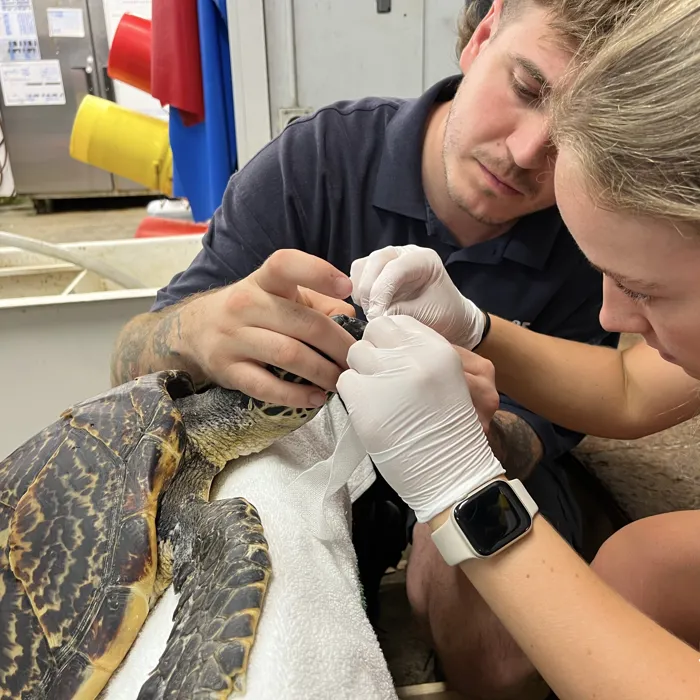
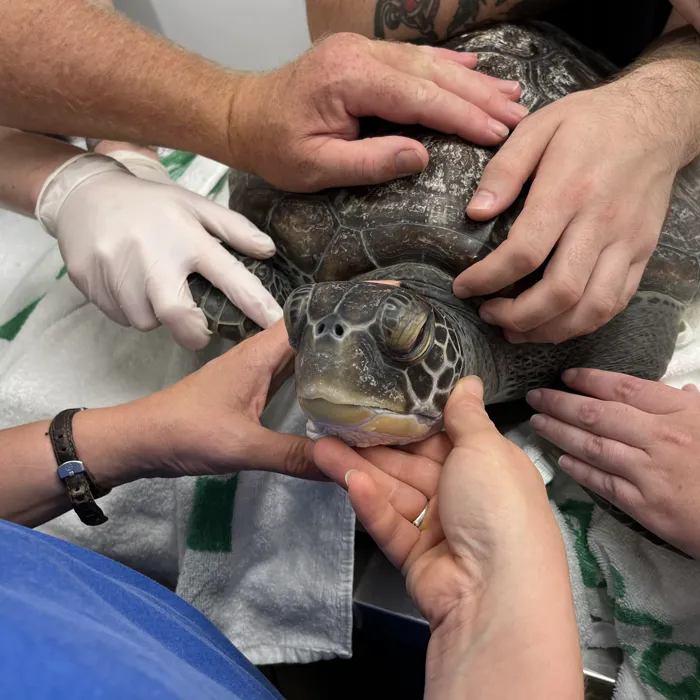
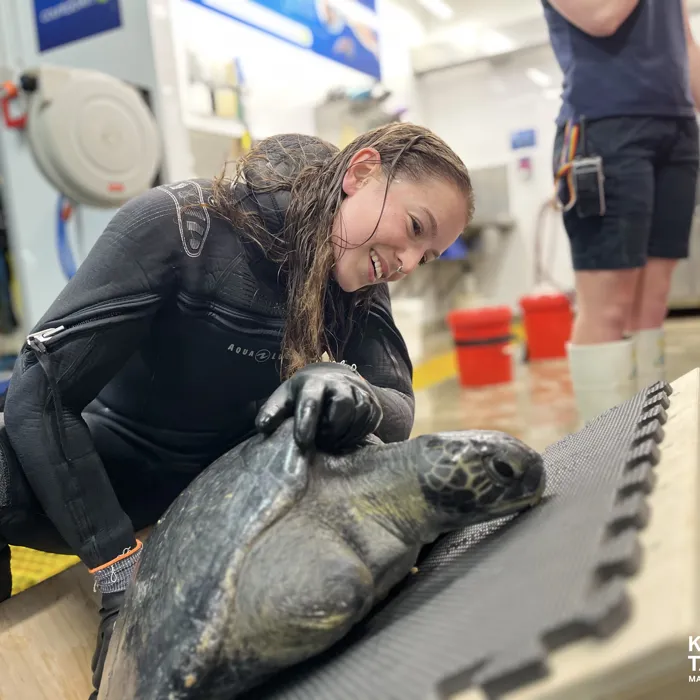
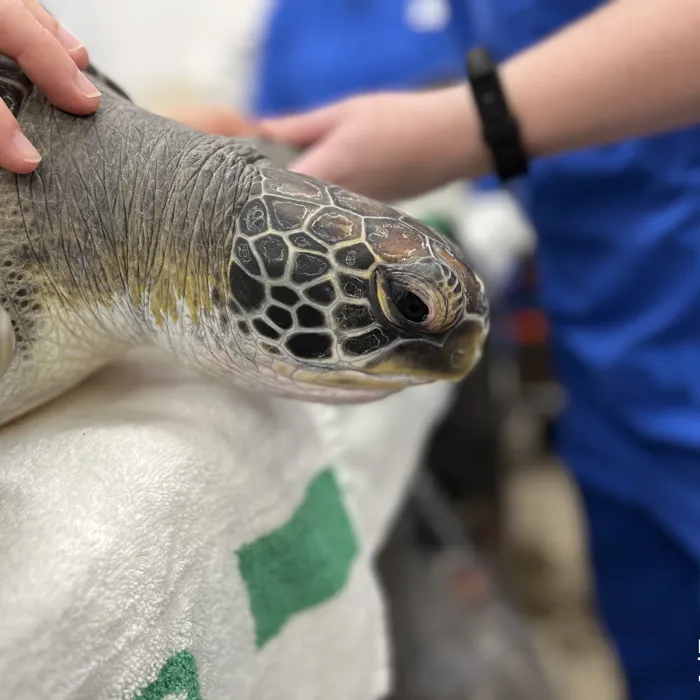
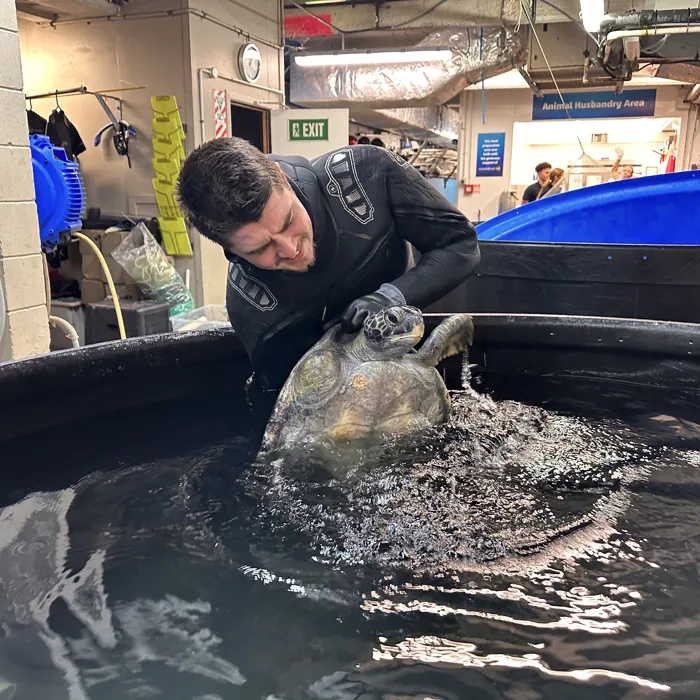
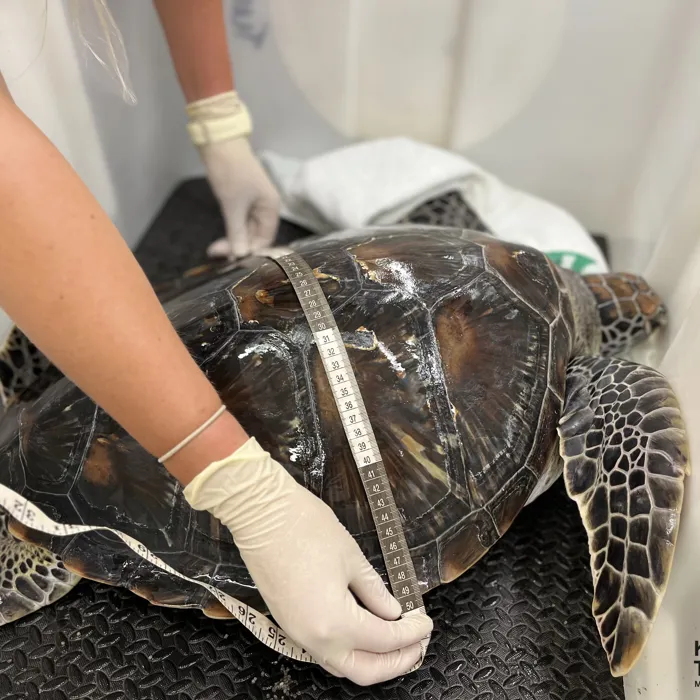
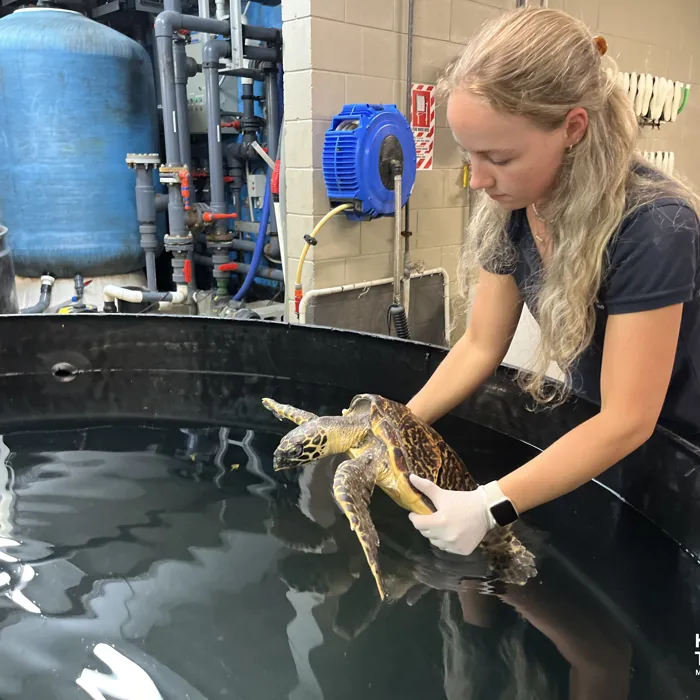
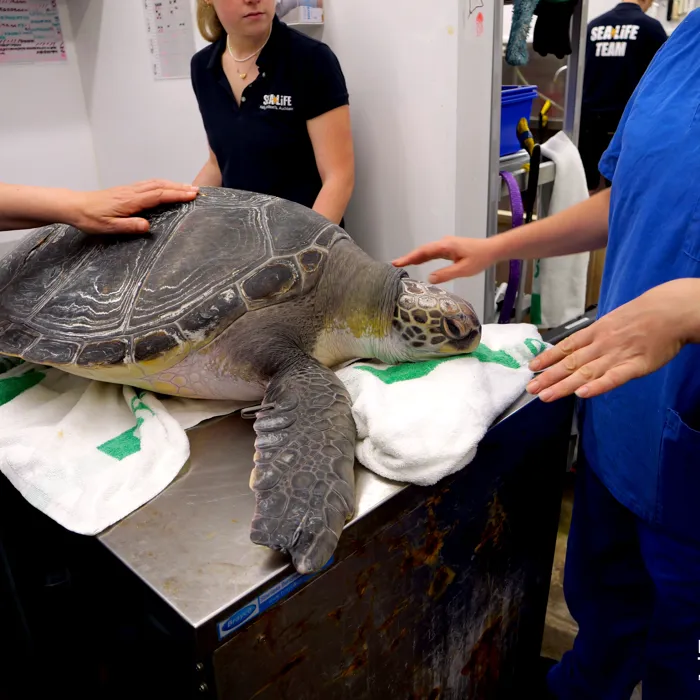
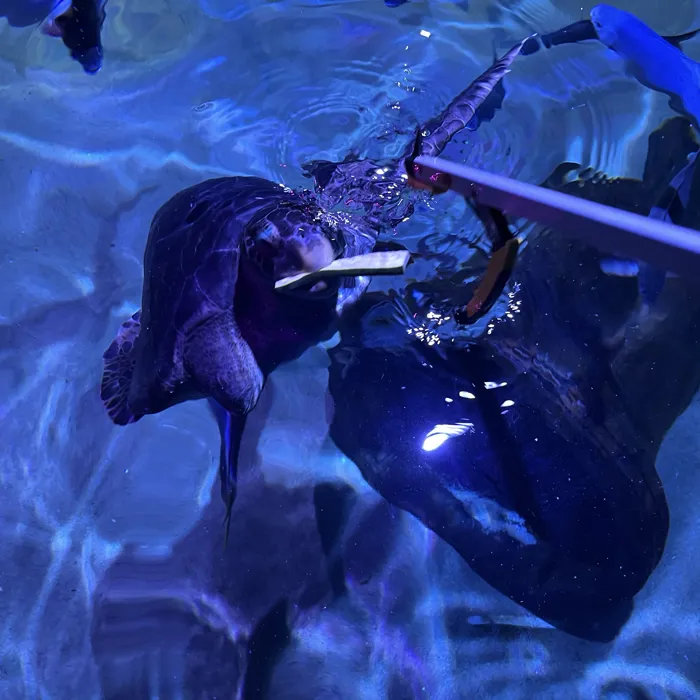
Caring for Turtles
Turtles brought into SEA LIFE Kelly Tarlton's most commonly suffer from dehydration, cold shock, and starvation. Other issues include missing limbs or large wounds, bacterial infections and fish hook or plastic pollution ingestion, to name a few.
We work closely with the Vet team at Auckland Zoo, where sick turtles get given a thorough assessment which usually involves x-rays, administering fluids for re-hydration and antibiotics to fight infections. Once the cause of the illness or injury is discovered, the turtles are then treated and monitored in quarantine at SEA LIFE Kelly Tarlton's.
To ensure that the turtles are fully rehabilitated before releasing them back into the ocean, SEA LIFE Kelly Tarlton's provides a temporary home for these amazing creatures for a period of time ranging between a few months to 3 years. Their time with us is usually spent in our Turtle Bay display where they get fed a whole variety of fish and vegetables.
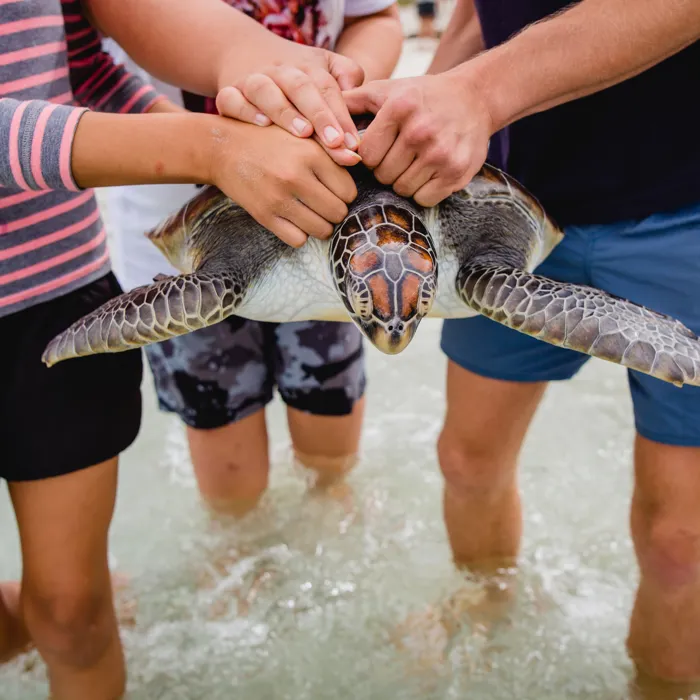
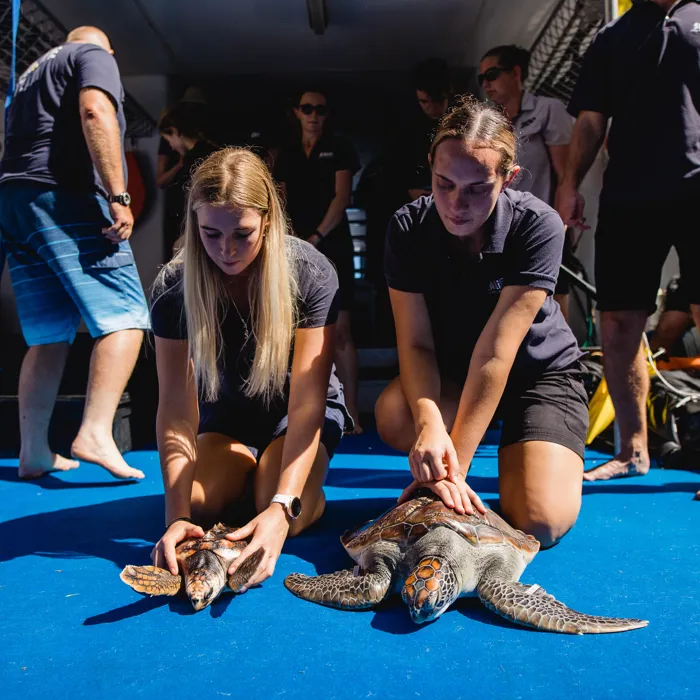
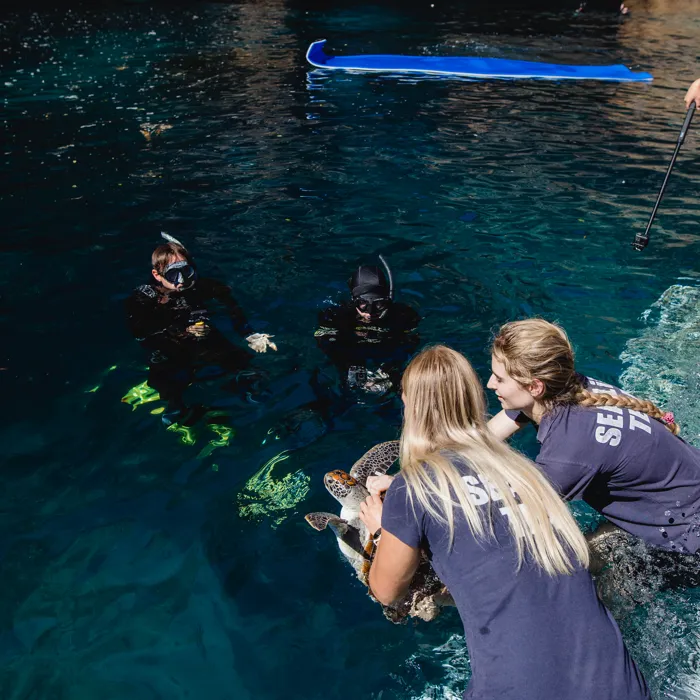
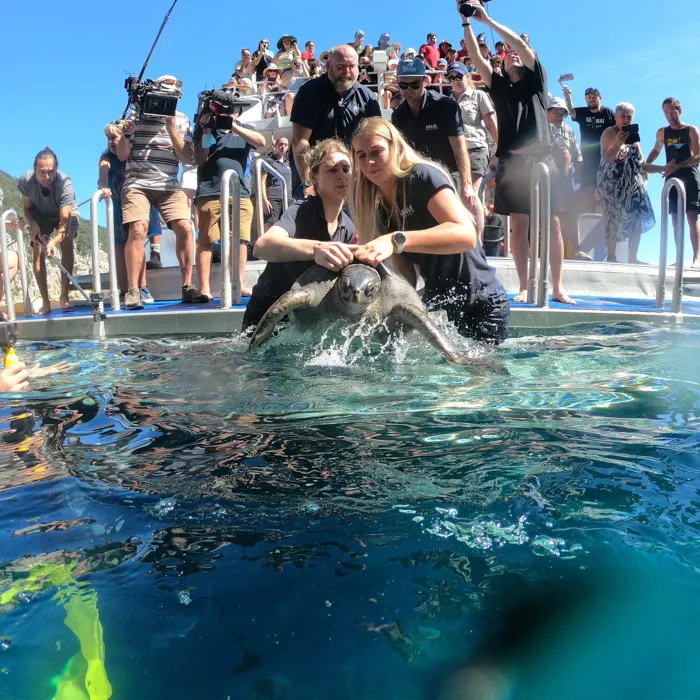
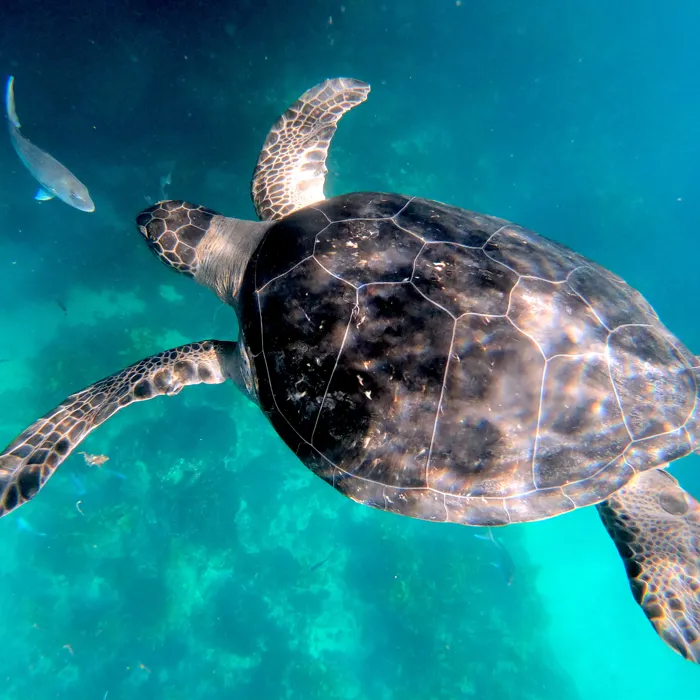
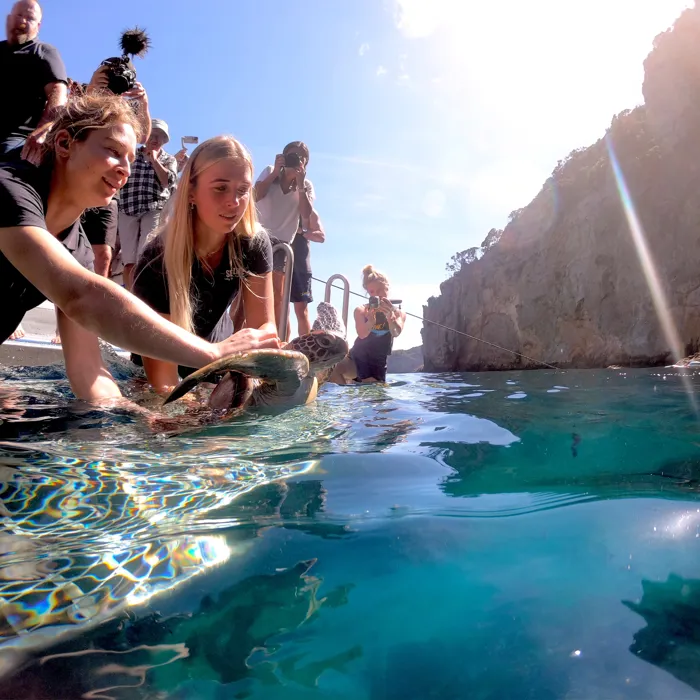
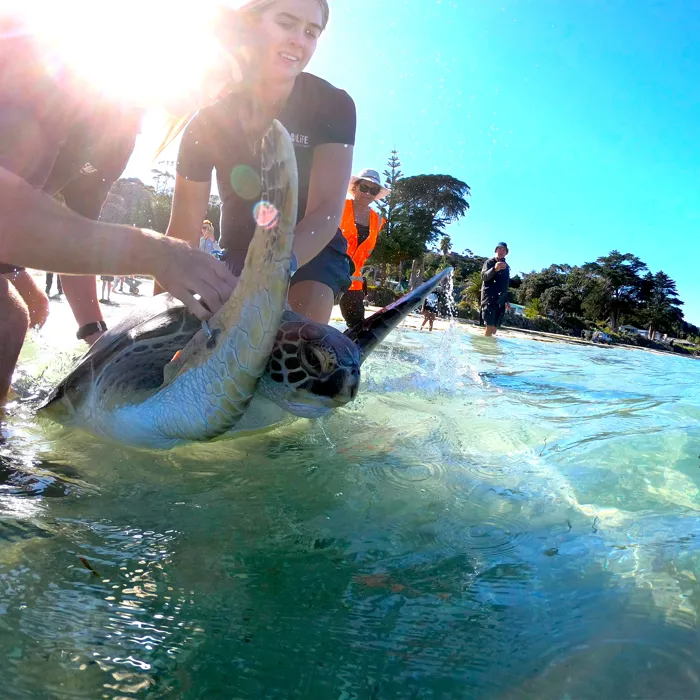
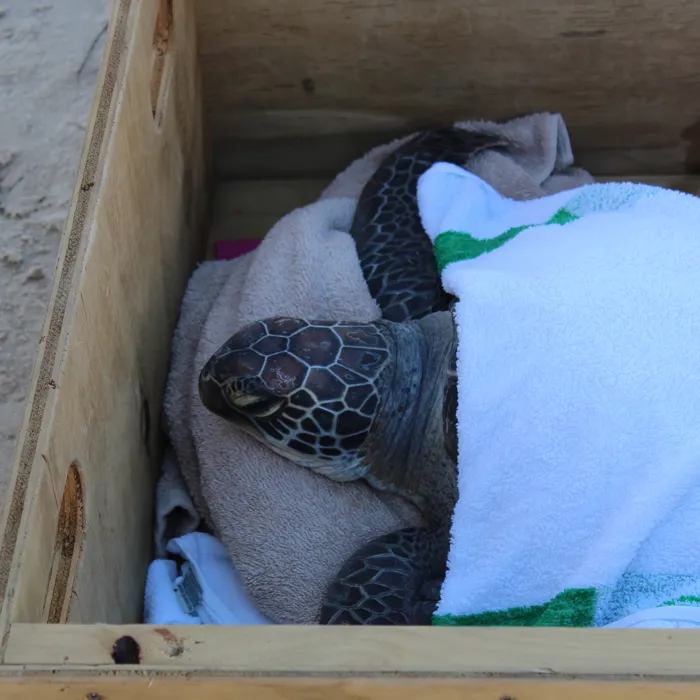
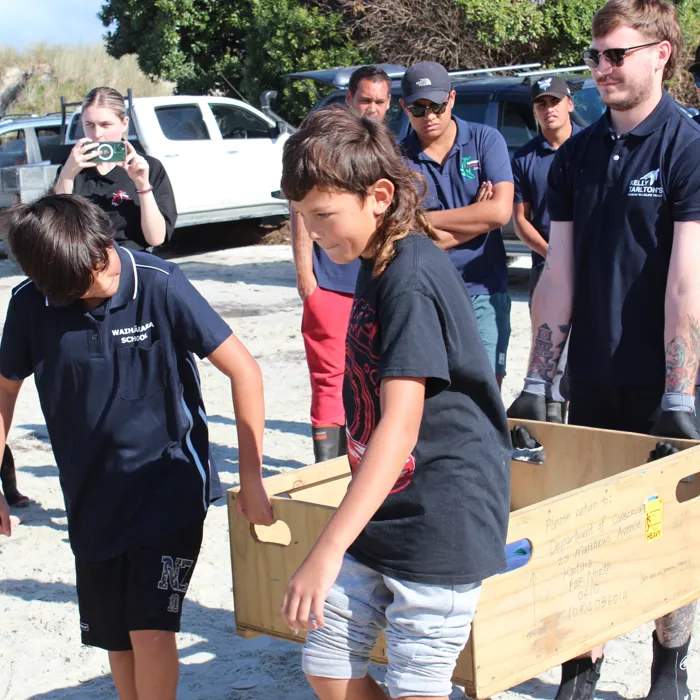
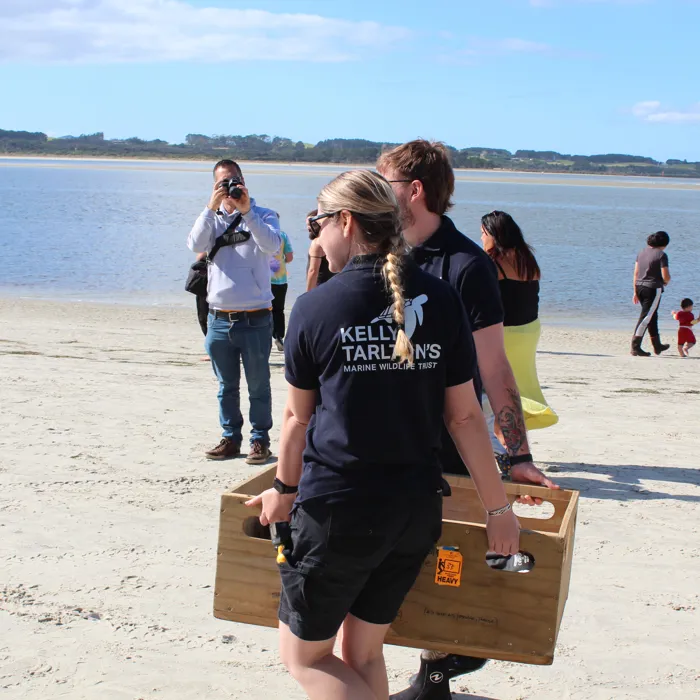
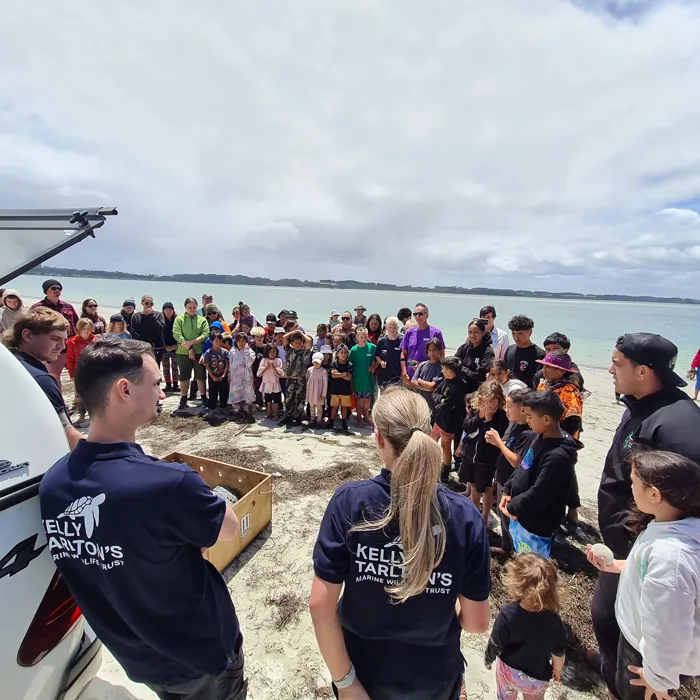
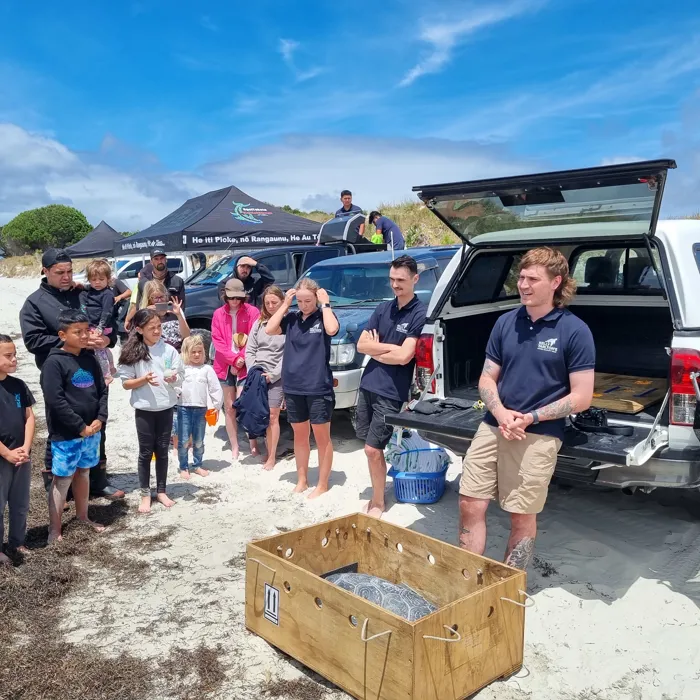
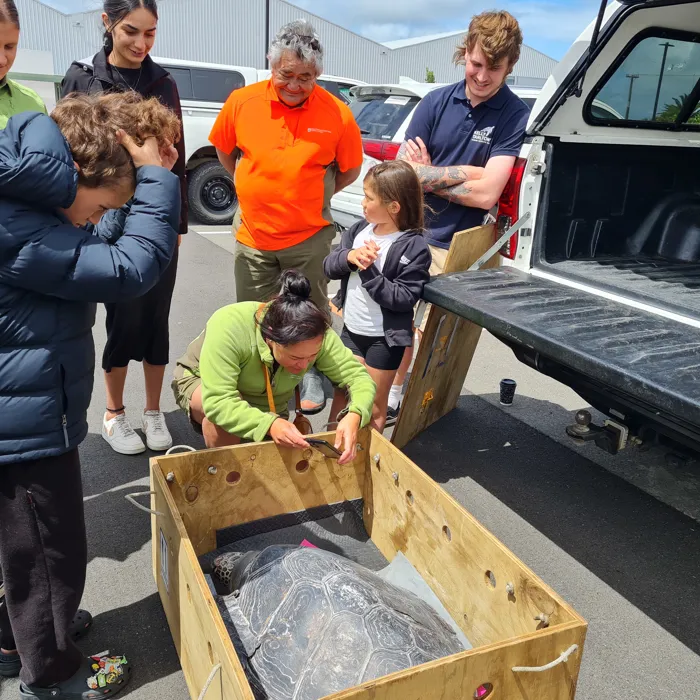
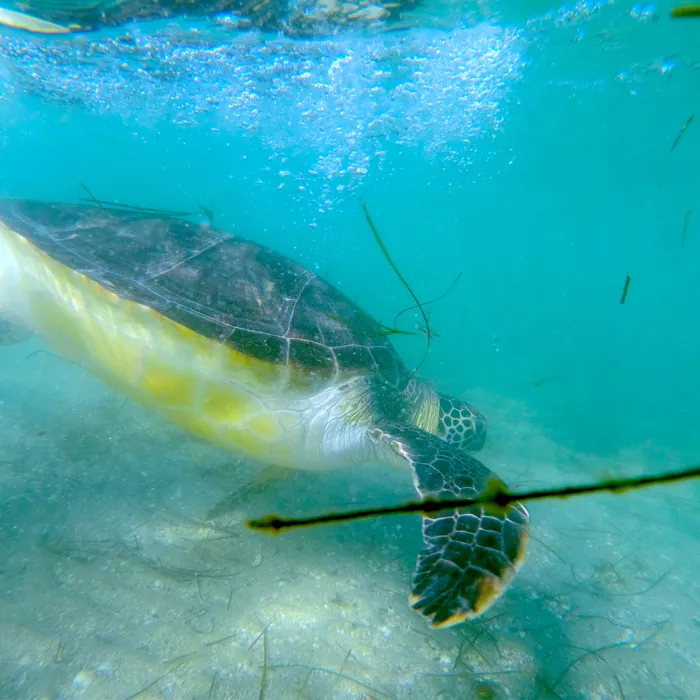
Back into the Wild!
Once the weather becomes warm enough for release, the turtles are tagged either on their flippers or satellite tagged on their shells. This is done as it allows us to learn more about the habits and migration of these incredible animals. Then SEA LIFE Kelly Tarlton's and Kelly Tarlton's Marine Wildlife Trust release the turtles back into the wild. Turtles are often released around the Kermedec Islands, which is north of New Zealand and anywhere around the north eastern coast of the North Island which includes the Poor Knights Island Marine Reserve.
Find out more about our Turtle Release Program
Our Turtle Hospital
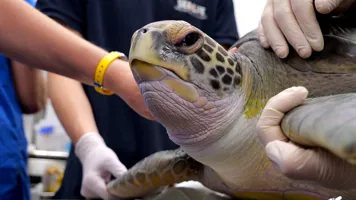
Team Turtle 2023
A video of our Animal Welfare Team working with our team turtle partners the vet team from Auckland Zoo on checking up on our turtles in our care Ngawai and Waewae Toru.
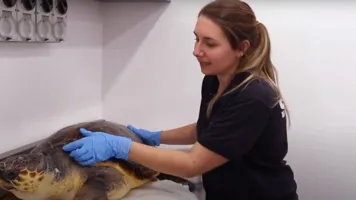
Abby the Loggerhead Turtle
Meet Abby - a female loggerhead turtle. She has been with us at SEA LIFE Kelly Tarlton's undergoing rehabilitation after washing up on a New Zealand beach. Abby was positively buoyant (floating!) when she arrived here and had a severe bone infection in one of her flippers. Unfortunately, this meant that she had to have the flipper amputated to save her life.
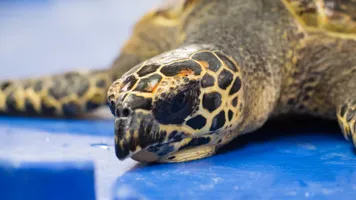
Turtle Rehabilitation
Here's our aquarist telling you more about our rehabilitation program as well as a few of our past patients.
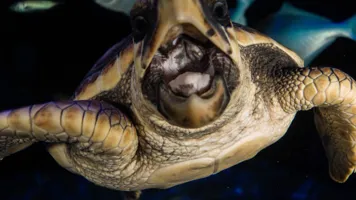
Jaxon the Loggerhead Turtle Ep1
Found out more about this rescued Loggerhead turtle.
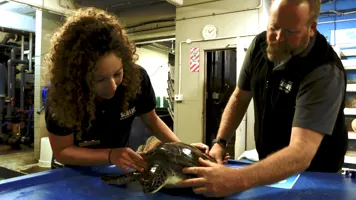
Jaxon the Loggerhead Turtle Ep2
A little bit more about Jaxon the rescued Loggerhead turtle; and general info about the species.
Jaxon was successfully released in March 2019, find out about the release here.
Found sea life needing help?
Who to call if you find a sick turtle needing help Who to call if you find a sick turtle needing help If you see a turtle that is sick, injured or in distress contact your local Department of Conservation office on 0800 DOC HOT (0800 362 468).
Report 1 or 2 sick, injured or distressed animals
Ring the Department of Conservation emergency hotline 0800 DOC HOT (0800 362 468).
Report a group (3 or more) of sick, injured or distressed animals
Ring the Ministry for Primary Industries (MPI) pest and disease hotline 0800 80 99 66.
Report whale or dolphin strandings
Ring the Department of Conservation emergency hotline 0800 DOC HOT (0800 362 468).
Report Illegal Activity
Ring the Department of Conservation emergency hotline 0800 DOC HOT (0800 362 468).
Illegal activity includes:
- Disturbing marine mammals
- Illegal whitebaiting
- Fishing in marine reserves
- Killing or catching native wildlife
For more information, please visit the Department of Conservation's website.
Identify a Species
We don't typically provide animal species identification services. If you have a photo of a species you want to identify or record, we recommend you use the iNaturalist website to report your observation. On NatureWatch you can upload your photos as 'observations', and ask for help in identifying any species you find. Experts including Department of Conservation staff who are regularly on NatureWatch to provide help.
